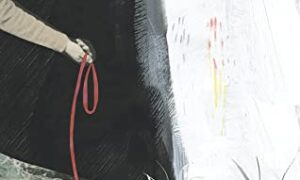 The Local by Joey Hartstone
The Local by Joey Hartstone
My rating: 4/5 cats




i’m a fan of mysteries and crime fiction, but i don’t often read legal thrillers. i don’t have any particular aversion to them, it’s just a genre i haven’t really explored. so when i was offered a copy of this legal-lit debut, i decided to give it a shot, although—truth be told—what really made my decision for me wasn’t some self-betterment goal to fill the gaps in my reader resume, but the fact that the author is one of the writers on The Good Fight, and i am a fan of all things connected to robert & michelle king.
i’m glad i did because this was fantastic! it’s set in marshall, texas; a small town where, IRL, a disproportionate number of the country’s patent cases are adjudicated, more than half of which (78% sez queen wiki) are won by the plaintiffs, who are often awarded millions in damages. sez hartstone:
One by one, plaintiffs in EDTX were not only winning their patent cases, but they were also being awarded ungodly sums of money. This created a gold rush.
Lawyers, politicians, hell, even sociologists would spend the next decade trying to explain what was going on with these juries in East Texas—they were not only unusually sympathetic to plaintiffs in patent cases but were also prone to delivering verdicts with huge dollar amounts. Thousands of legal articles and dissertations were written on the subject, but it all boiled down to this: when people who are overlooked for their entire lives are given a modicum of power, they will wield it with great force.
in The Local, the legal niche of patent litigation is overseen by the affable judge gardner. over the years, he has streamlined the process into the most efficient system for handling the heavy caseload by enforcing a five-day limit for any trial, ensuring that big firms representing deep-pocket clients can’t use any financial-siege strategies to drag out the case until the plaintiff is forced to retreat or go broke fighting.
and since most global-billion-dollar companies, and the clients suing them, are not situated in marshall, texas, both parties must retain local counsel. enter james euchre. okay, so this is going to be a too-long quote for many of you, but hartstone lays out the process so much better than i could summarize. plus, it’ll give you a sense of the voicey clarity of his prose, so i’m only slightly apologetic about it:
So where did I come in? Lawyers are licensed to practice law in specific jurisdictions, namely in the state or states where they have passed the bar exam and where their law firms are based. When a case takes lawyers out of their jurisdictions, they need to add someone within the new state to the team. That someone is called local counsel.
A local can do as much or as little as the rest of the team demands. Often, a local counsel does nothing more than advise the team on any unique quirks of that particular venue and serve as a signatory on any documents that need a regional John Hancock. All of this can be done for a nominal fee. Clients may never even realize that a local is on their team. That’s how it used to be in Marshall. After all, intellectual property law is complex, and no one in East Texas had ever tried a patent case. Lawyers here, though, had other skills that aren’t taught at top ten law schools. It didn’t take long for white-shoe law firms to discover that something was missing, something essential that local counsels could provide.
Here’s a scenario that happened too many times to count. A twin-engine Cessna Citation with the inevitable moniker “Law Firm One” touches down at the quiet Harrison County Airport. Six attorneys step off their firm’s jet, all wearing bespoke suits purchased on Madison Avenue. A private car, probably from Dallas, picks them up and drives them five miles, past broken fences and run-down trailers, into town. They march into the courthouse with Italian leather briefcases and polished expert witnesses. A casual observer may understand that this doesn’t go over too well with our juries, but rich and powerful people often lack self-awareness. There was a major disconnect between our humble citizens of Marshall and these corporate attorneys from big cities. To make matters worse, some of thee people thought they could fake their way into the good graces of the jurors. I’ve seen out-of-town lawyers go straight from the airport to the Boot Barn on Pinecrest Drive, buy a pair of shiny new Buckaroos, and then walk their blistered feet into court as if they’ve just come from the ranch. Mistakes like this have cost clients millions.
The top patent law firms around the country began to realize that what was missing from their teams was someone who spoke the language, someone who could connect with the eight citizens on the jury. The more we locals were asked to speak, the more the jurors seemed to listen. Locals, who for so long had been undervalued and underused, were finally being called upon to perform an indispensable service. Like strong pinch hitters and clutch relief pitchers, our roles were small but vital. And we began to be paid accordingly.
So it came to pass that the best trial lawyers were not in Houston, Austin, or Dallas but rather in a small corner of the state, practicing an area of law that none of us had ever studied, working on cases worth tens or even hundreds of millions of dollars. We were the final component to a billion-dollar industry, a magnificent legal universe created by one visionary judge in Marshall, Texas.
phew—you still here? hi! so but even if you don’t think patent law is gonna hold your interest, don’t worry, because it’s really about the murrrrderrrr of that verysame visionary judge, in a trial where euchre is uncomfortably placed in the position of defending the man accused of killing his friend, father figure, and mentor; his “favorite person in the world,” the investigation of which exposes the dirty business of smalltown politics, secrets, and dusty rivalries. euchre must also confront the burdens of the past, both his personal demons of loss, addiction, and daddy issues and the larger-picture issues of racial bias in smalltown texas. also, his client is kind of a dick. but maybe not a murderer.
it is a super-quick read—it has more meat to it than a screenplay, but it reads with that same energy, making it a real page-turner through euchre’s sifting through clues and red herrings all the way to its satisfying showdowny conclusion. the romance subplot is perhaps a little threadbare and perfunctory, and layla’s character could have been fleshed out a bit more, but apart from that, it’s a spectacularly fun debut.
and when he dropped the “one-party consent” line, i cheered, since that is a veritable staple of The Good Wife-verse, evoked enough times that you could make a drinking game out of it.

you could even make a drinking game out of drinking, as this round up of all the times kalinda♥ and alicia drink together proves.
anyway, it’s a brisk summer read filled with fascinating information about patent law, which is a sentence i never thought i would write.
read my book reviews on goodreads







